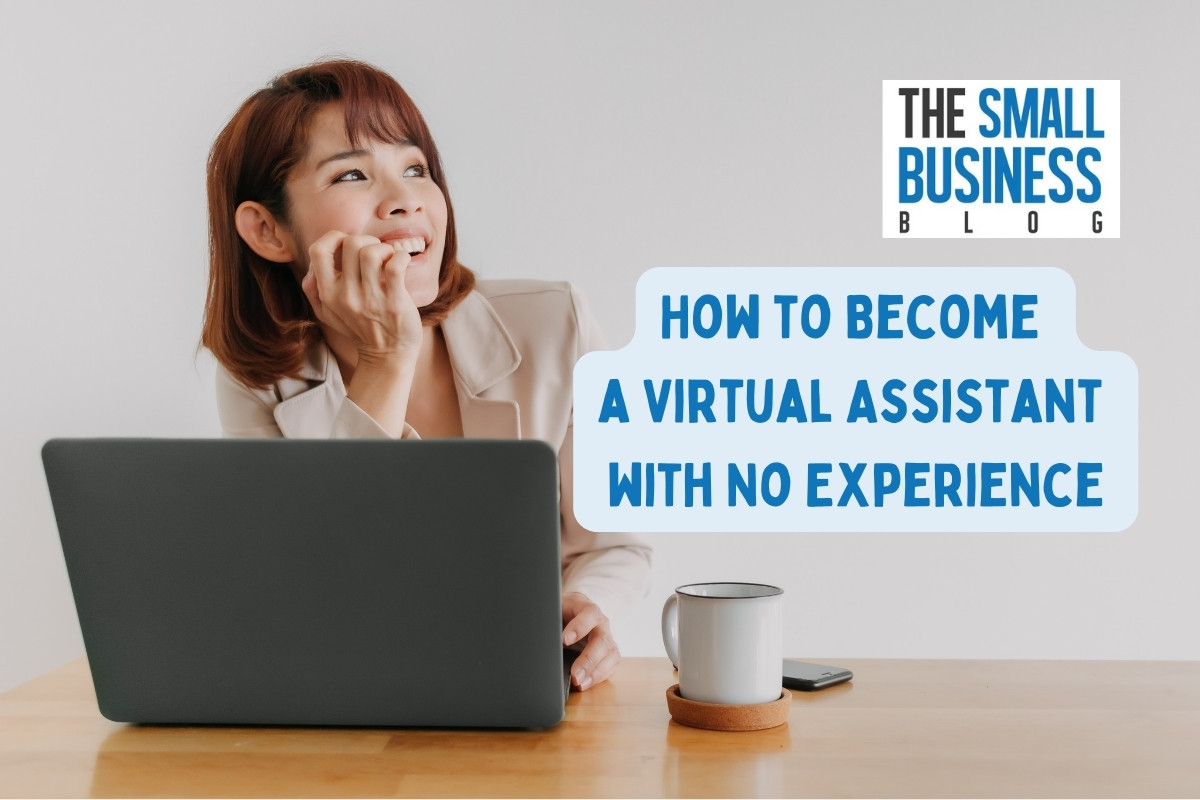Are you interested in becoming a virtual assistant but don’t have any experience?
Don’t worry, it’s possible to break into this field with little to no prior experience.
As a virtual assistant, you can work from the comfort of your own home, set your own hours, and work with clients from all over the world.
In this article, we’ll provide you with all the information you need to get started as a virtual assistant, even if you’re starting from scratch.
Post Contents
Key Takeaways
- Becoming a virtual assistant is possible even if you have no experience.
- To succeed as a virtual assistant, you’ll need to develop administrative and technical skills, as well as strong communication and time-management skills.
- Building a strong portfolio, setting competitive pricing, and marketing yourself effectively are key to finding success as a virtual assistant.
Understanding the Role of a Virtual Assistant

Becoming a virtual assistant can be an exciting opportunity to work from home while utilizing your administrative skills.
As a virtual assistant, you will be responsible for providing administrative support to clients remotely.
This can include a variety of tasks such as data entry, bookkeeping, customer service, email management, calendar management, transcription, scheduling, and general administrative work.
One of the benefits of being a virtual assistant is the flexibility it offers.
You can work from anywhere as long as you have a computer and an internet connection.
This makes it an ideal job for those who want to work from home or travel while working.
As a virtual assistant, your tasks will vary depending on the needs of your clients.
You may be responsible for managing their email inbox, scheduling appointments, or even conducting research on their behalf.
It is important to have excellent communication skills and be able to work independently to ensure that you meet your clients’ expectations.
Some of the common tasks that a virtual assistant may be responsible for include:
- Administrative tasks such as data entry and bookkeeping
- Customer service and support
- Email management and organization
- Calendar management and scheduling
- Transcription and document preparation
As you gain experience as a virtual assistant, you may be able to specialize in certain areas such as social media management or content creation.
This can help you to stand out from other virtual assistants and attract more clients.
Necessary Skills and Tools
Becoming a virtual assistant with no experience can seem daunting, but with the right skills and tools, you can succeed in this field.
Here are some necessary skills and tools that can help you become a successful virtual assistant:
Soft Skills
Soft skills are essential for any virtual assistant.
They include communication skills, attention to detail, and organizational skills.
Clients need a virtual assistant they can trust, as you may be dealing with sensitive information, such as financials.
In addition, your work will be useless to clients if it has mistakes that they need to correct.
Therefore, it is important to have excellent attention to detail and organizational skills to ensure that you deliver high-quality work.
Time Management
Time management is crucial for virtual assistants.
You need to be able to manage your time effectively to ensure that you meet deadlines and deliver work on time.
Using tools like calendars, to-do lists, and project management software can help you stay organized and manage your time more effectively.
Equipment
To become a virtual assistant, you will need some necessary equipment, including a computer, laptop, or desktop computer, a tablet, and a headset with a microphone.
You will also need a reliable internet connection to communicate with clients and access online tools and resources.
Portfolio
Having a portfolio of your work can help you showcase your skills and experience to potential clients.
You can create a portfolio using tools like PowerPoint or other presentation software to showcase your work and highlight your skills.
Flexibility
As a virtual assistant, you need to be flexible and adaptable to different situations.
You may need to work with clients in different time zones, work on different projects, and handle different tasks.
Therefore, it is important to be flexible and open to new challenges.
Building Your Virtual Assistant Portfolio

Creating a virtual assistant portfolio is essential to showcase your skills and attract clients.
Even if you have no experience, you can still create a portfolio that highlights your strengths and demonstrates your potential as a virtual assistant.
To start building your portfolio, you need to determine the services you want to provide.
Niching down and focusing on specific services will make it easier for potential clients to understand what you offer and how you can help them.
Some popular services include social media management, content creation, blog posts, design, social media presence, blogging, social media marketing, content marketing, and graphic design.
Once you have decided on your services, you can start creating samples of your work.
If you have no experience, you can create samples by working on personal projects or volunteering your services to friends or family members.
You can also create samples by using templates or mock projects.
When creating your samples, make sure they are high-quality and showcase your skills.
Use a variety of formats, including written content, graphics, and social media posts.
You can also include testimonials from clients or references from previous employers to demonstrate your reliability and work ethic.
In addition to your samples, your portfolio should also include information about your background, education, and skills.
Include a brief bio that highlights your strengths and explains why you are passionate about virtual assisting.
List any relevant certifications or courses you have completed, as well as any software or tools you are proficient in.
Finally, make sure your portfolio is easy to navigate and visually appealing.
Use a clean and professional design, and organize your samples and information in a way that is easy to understand.
You can also include a call-to-action that encourages potential clients to contact you for more information or to hire your services.
Building a virtual assistant portfolio may seem daunting, but with some effort and creativity, you can create a portfolio that showcases your skills and attracts clients.
Remember to focus on your strengths, create high-quality samples, and present yourself in a professional and engaging way.
Finding Your First Job

Congratulations! You’ve taken the first step towards becoming a virtual assistant.
Now, it’s time to find your first job.
Don’t worry if you don’t have any experience.
There are plenty of opportunities out there for beginners.
One of the best places to start your search is on job boards like Indeed.
They have a wide variety of virtual assistant positions available, including entry-level jobs.
You can also try Upwork, which is a freelance platform that connects clients with virtual assistants.
When you’re applying for your first job, make sure to highlight your skills and any relevant experience you may have.
Even if you don’t have any direct experience as a virtual assistant, you can still draw on your previous work experience to show that you have the skills necessary for the job.
Another option is to start with lower-paying jobs to gain experience and build up your portfolio.
This can lead to better-paying jobs down the line as you gain more experience and develop a strong reputation as a virtual assistant.
Remember, finding your first job may take some time, but don’t get discouraged.
Keep applying and putting yourself out there, and eventually, you’ll land your first gig as a virtual assistant.
Setting Your Pricing
One of the most important aspects of becoming a virtual assistant is setting your pricing.
You want to ensure that you are charging a fair rate for your services, while also making a profit.
Here are some tips to help you set your pricing:
Determine Your Hourly Rate
The first step to setting your pricing is to determine your hourly rate.
This will depend on a variety of factors, including your experience, the services you offer, and the industry you are working in.
You can research industry standards to get an idea of what other virtual assistants are charging, but ultimately, you need to decide what you are comfortable charging.
Consider Your Expenses
When setting your pricing, it’s important to consider your expenses.
This includes any software or tools you need to do your job, as well as any marketing or advertising costs.
You also need to factor in the time it takes to complete each task, so you can ensure that you are making a profit.
Decide on Your Billing Method
You also need to decide on your billing method. Will you charge hourly or by project?
Hourly billing is common in the virtual assistant industry, but some clients prefer a flat fee for a project.
Consider what works best for you and your clients.
Create a Professional Invoice
Once you have determined your pricing and billing method, you need to create a professional invoice.
This should include your hourly rate or project fee, as well as any expenses you have incurred.
Make sure your invoice is clear and easy to understand, so your clients can pay you quickly and easily.
Marketing Yourself
Excited to become a virtual assistant but not sure how to market yourself?
Don’t worry, we’ve got you covered!
Marketing yourself as a virtual assistant is crucial to finding clients and building a successful business.
Here are some tips to help you get started:
- Create a professional website: A website is a great way to showcase your skills, experience, and services. Make sure your website is easy to navigate, visually appealing, and includes a clear call-to-action.
- Utilize social media: Social media is a powerful tool for marketing yourself as a virtual assistant. Create profiles on platforms like LinkedIn, Twitter, and Facebook and regularly post about your services and expertise. Engage with potential clients and other virtual assistants in your industry.
- Email marketing: Email marketing can be an effective way to reach potential clients and promote your services. Create a newsletter or email campaign that highlights your skills and experience and send it out to your email list.
- Lead generation: Generating leads is key to finding new clients. Consider partnering with other businesses or virtual assistants in your industry to generate leads and referrals.
- cold calling: While it may seem daunting, cold calling can be an effective way to find new clients. Create a script and practice your pitch before making calls. Be confident and professional, and remember that rejection is not personal.
- Marketing tasks: Don’t forget about the little things! Creating business cards, flyers, and other marketing materials can help you stand out and attract potential clients.
Remember, marketing yourself as a virtual assistant is an ongoing process.
Continuously evaluate and adjust your marketing strategies to find what works best for you and your business.
Good luck!
Specialization Areas
As a virtual assistant with no experience, it’s important to identify your strengths and interests to find a specialization area that suits you best.
Here are some popular specialization areas to consider:
E-commerce
If you have a passion for online shopping and experience in managing online stores, then e-commerce could be a great specialization area for you.
As an e-commerce virtual assistant, you could be responsible for managing product listings, processing orders, and handling customer inquiries.
Finance
If you have experience working with numbers and managing finances, then bookkeeping or financial tasks could be your specialization area.
As a virtual assistant in finance, you could be responsible for managing invoices, tracking expenses, and reconciling accounts.
Customer Support
If you have excellent communication skills and enjoy helping others, then customer support could be a great specialization area for you.
As a virtual assistant in customer support, you could be responsible for answering customer inquiries, resolving issues, and providing support via email or chat.
Content Research
If you have strong research skills and enjoy reading, then content research could be a great specialization area for you.
As a virtual assistant in content research, you could be responsible for conducting research, gathering data, and creating reports for your clients.
Customer Research
If you have experience in market research and enjoy analyzing data, then customer research could be a great specialization area for you.
As a virtual assistant in customer research, you could be responsible for conducting surveys, analyzing data, and creating reports for your clients.
Website Management
If you have experience in website design and management, then website management could be a great specialization area for you.
As a virtual assistant in website management, you could be responsible for updating website content, managing social media accounts, and improving website traffic.
Telemarketing
If you have excellent communication skills and enjoy sales, then telemarketing could be a great specialization area for you.
As a virtual assistant in telemarketing, you could be responsible for making sales calls, generating leads, and closing deals.
IT Support
If you have experience in IT support and enjoy troubleshooting technical issues, then IT support could be a great specialization area for you.
As a virtual assistant in IT support, you could be responsible for providing technical support, troubleshooting issues, and maintaining computer systems.
Consider your strengths and interests to find the specialization area that suits you best.
With dedication and hard work, you can become a successful virtual assistant with no experience.
Online Courses and Training
If you want to become a virtual assistant but have no experience, taking online courses and training can help you gain the necessary skills and knowledge.
There are many online courses available that can teach you everything from basic administrative tasks to advanced skills like social media management and graphic design.
Online courses and training programs are a great way to learn at your own pace and on your own schedule.
You can take courses from world-class universities and companies like Google, Yale, and Salesforce, or from smaller businesses that specialize in virtual assistant training.
Some popular online courses for virtual assistants include:
- Coursera: Coursera offers a variety of courses and programs on virtual assistant skills like time management, communication, and project management. You can try different courses and find your best fit at no additional cost. You can earn certificates for learning programs you complete.
- Udemy: Udemy is another popular platform that offers courses on virtual assistant skills like email management, social media management, and customer service. The courses are affordable and you can learn at your own pace.
- Virtual Assistants Training Academy: The Virtual Assistants Training Academy offers comprehensive training programs that cover everything from basic administrative tasks to advanced skills like website design and marketing. The courses are taught by experienced virtual assistants and business owners.
Taking online courses and training can help you gain the necessary skills and knowledge to become a successful virtual assistant.
It can also help you stand out from other candidates when applying for virtual assistant jobs.
Working with Clients
As a virtual assistant, you will be working closely with clients to help them with their administrative tasks.
This can include anything from scheduling appointments to managing emails and travel arrangements.
It’s important to establish a good working relationship with your clients to ensure a successful partnership.
One key aspect of working with clients is maintaining a balance between being professional and being personable.
While it’s important to maintain a professional image, you also want to establish a comfortable and friendly relationship with your client.
This can help build trust and make working together more enjoyable.
Another important aspect of working with clients is communication.
It’s important to establish clear lines of communication from the beginning to avoid any misunderstandings or confusion.
Make sure to discuss how often you will be in contact and through what channels (email, phone, video chat, etc.).
When working with entrepreneurs, it’s important to understand that they may have unique needs and expectations.
They may be working on multiple projects simultaneously and need someone who can keep up with their fast-paced work style.
As a virtual assistant, you can help entrepreneurs stay organized and focused on their goals.
Finally, when working with clients, it’s important to be flexible and adaptable.
Each client is unique and may have different requirements and expectations.
Be open to feedback and willing to make adjustments to your work style to ensure a successful partnership.
Conclusion
Congratulations! You’ve made it to the end of this guide on how to become a virtual assistant with no experience.
By now, you should have a good understanding of what a virtual assistant is, the skills required to become one, and how to get started on your journey.
Becoming a virtual assistant can be an exciting and rewarding career path.
You’ll have the opportunity to work from the comfort of your own home, set your own hours, and choose the clients and projects that interest you the most.
Plus, you’ll be helping busy entrepreneurs and business owners by taking on tasks that they don’t have time for.
Remember, the key to success as a virtual assistant is to be organized, reliable, and communicative.
Always be upfront with your clients about your abilities and limitations, and don’t be afraid to ask for help or clarification when needed.
With hard work and dedication, you can build a thriving virtual assistant business that allows you to live the life you’ve always dreamed of.
Here are some final tips to help you get started:
- Create a professional website and social media presence to showcase your skills and attract clients.
- Join online communities and forums for virtual assistants to network with other professionals and learn from their experiences.
- Consider taking online courses or certifications to improve your skills and increase your credibility.
- Don’t be afraid to specialize in a particular niche or industry, such as bookkeeping, social media management, or customer service.
- Finally, remember to take care of yourself and prioritize your well-being. Virtual assisting can be a demanding job, but with the right mindset and habits, you can minimize stress and enjoy a fulfilling career.






























